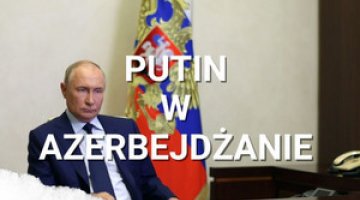Attack on TV Rain, a warning for the Internet
A campaign against the independent internet station Dozhd TV (TV Rain), a moderate opposition station directed mainly to the middle class, has been ongoing for a week in Russia. On 26 January the station aired a controversial opinion poll on the blockade of Leningrad during World War II, which questioned whether the city should have been surrendered to avoid casualties. This provoked a sharp reaction from the authorities; the Kremlin spokesman Dmitry Peskov acknowledged that the station had “crossed a red line”; the government agency Roskomnadzor issued an official warning to the station, and the biggest Russian cable operators stopped broadcasting the station’s programming, which led to an 80% fall in the audience, and left the station threatened with bankruptcy. Many well-known journalists and activists have come to TV Rain’s defence, and viewers have begun to buy paid subscriptions en masse, in order to support the station financially.
Commentary
- The attack on TV Rain has a significant ideological dimension. The station touched a sensitive nerve on an issue related to World War II, which strikes at the foundation of the Russian state ideology, in which victory in the war and the role of the Soviet Union as the ‘liberator of Europe’ are fundamental, and any attempts to ‘relativise’ this meet with harsh reactions from the authorities. Meanwhile, both the question in TV Rain’s poll and the response of the participants (54% answered in the affirmative) show that both the journalists and the target audience (the younger generation of Russians from large cities) have a different approach to the value of human life and the price of winning the war than that of officialdom, and this translates into how they think about the model of the state and individual rights.
- An additional, personal motive for the campaign against TV Rain may be the fact that the station recently publicised reports (as disclosed by Alexey Navalny) of a luxury residence owned by Vyacheslav Volodin, deputy head of the Kremlin administration and one of the key associates of President Putin. TV Rain’s founder, Natalia Sindeyeva, has claimed that the Presidential Administration lies behind the pressure on the cable operators to disconnect the station.
- The attack on TV Rain also proves that the authorities are treating the ‘new media’ of the internet as an increasingly serious opponent. TV Rain, which offers both quality entertainment and serious journalism, live discussions and reports (including anti-Kremlin protests) has over the last few years become an opinion-former in the media, popular among the residents of large cities, but also among business, intellectual and political elites. The station, which is available online and via cable networks, is estimated to have a viewership of 11 million people. Apart from TV Rain, other media websites have also been subjected to pressure: on 1 February a law came into force allowing websites which host so-called extremist content to be blocked without a warrant from the court; and a draft law has been submitted in the Duma to collect the personal data of Internet users. Government pressure has also led to a takeover of shares in vKontakte, Russia’s largest social networking site (effectively the Russian equivalent of Facebook) by Alisher Usmanov, an oligarch with close ties to the authorities. This shows the increasing repressiveness of the Russian system of government, which since Vladimir Putin’s return to the Kremlin in 2012 has increasingly narrowed the boundaries of the opposition’s permitted activities.




